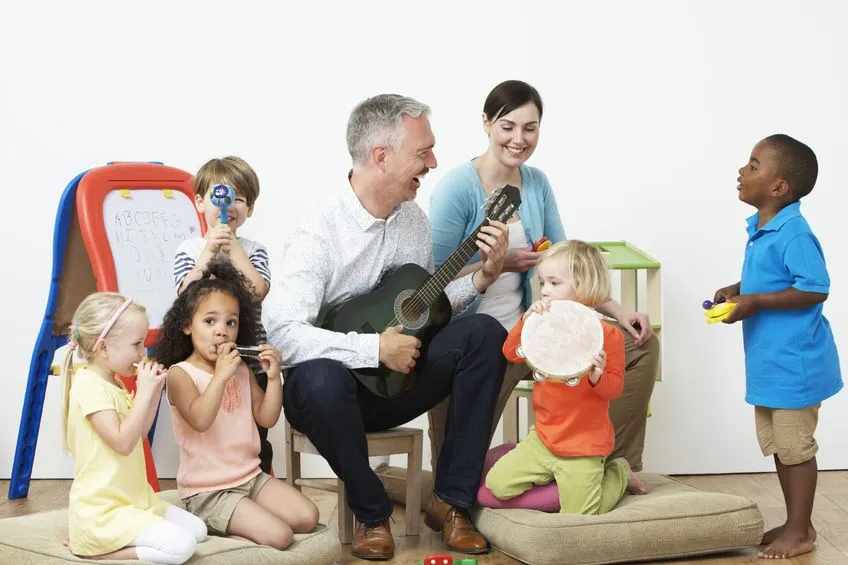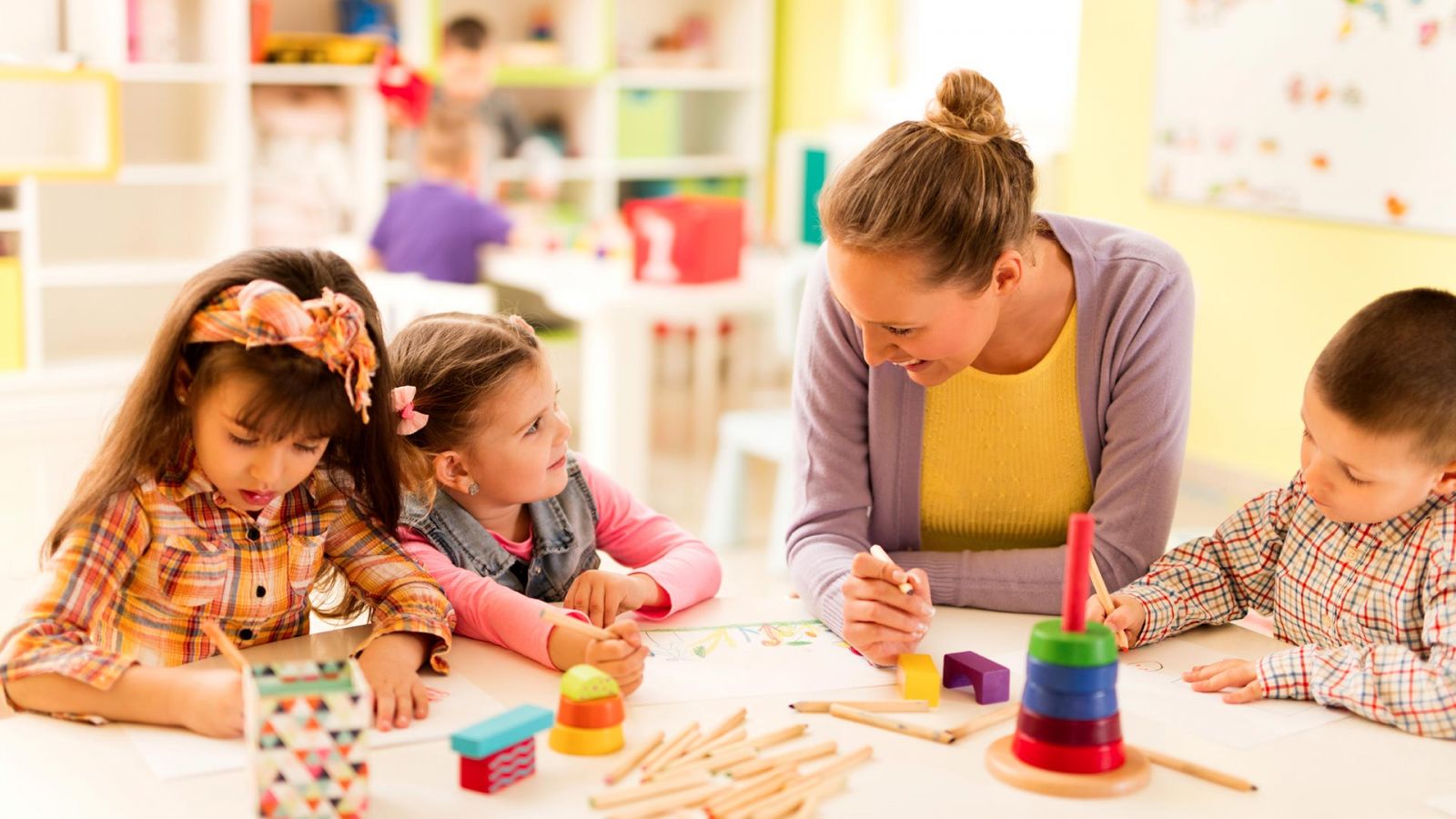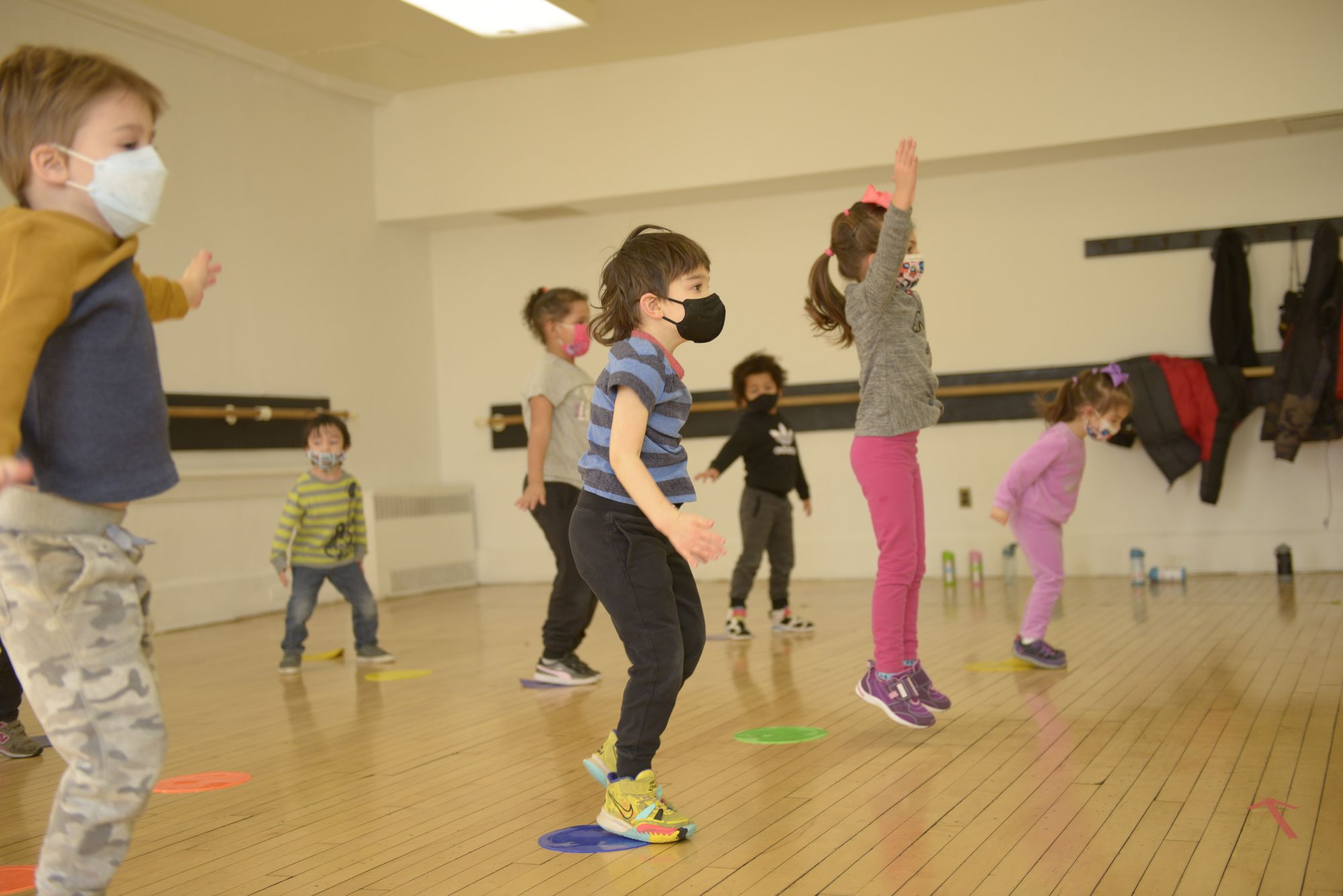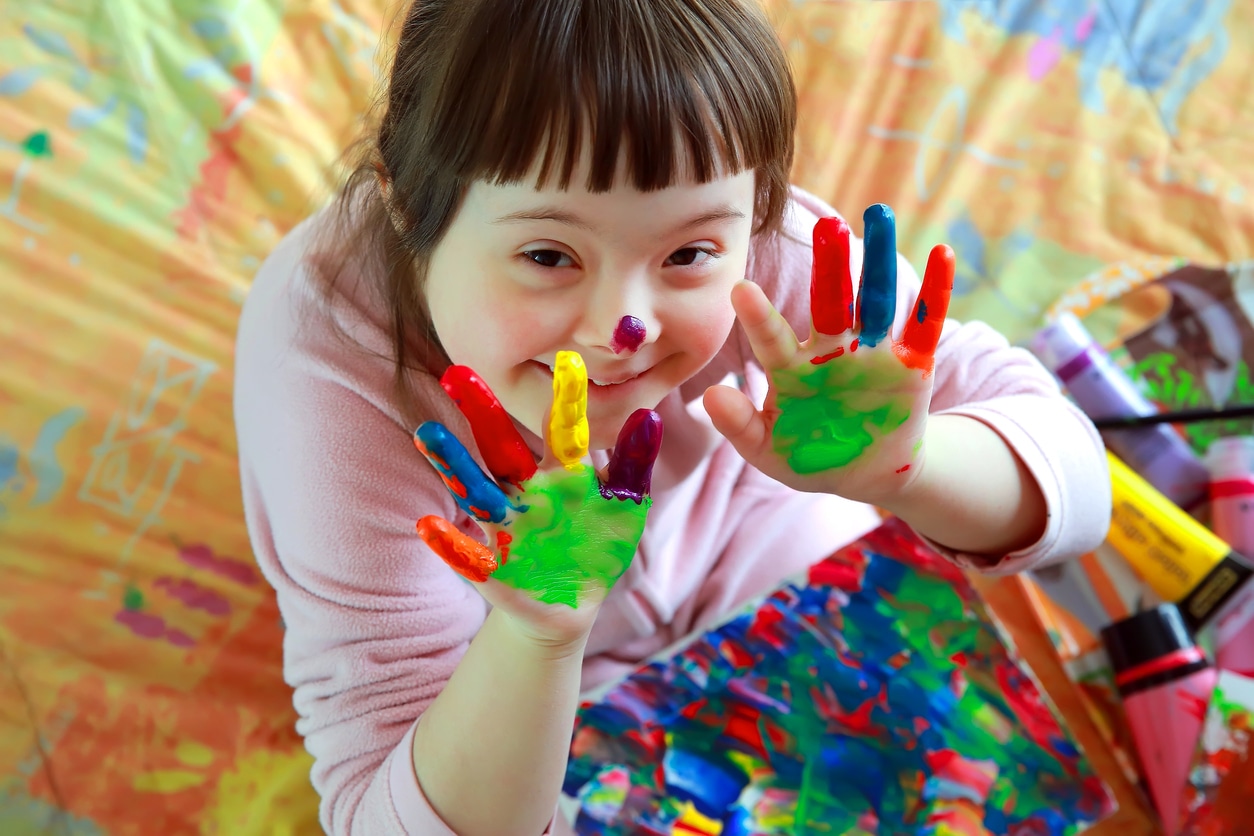How-To: Fun Therapeutic Activities for Special Needs Children
Immerse your child in fun and therapeutic activities tailored for their needs. Explore sensory play with different textures like sand and water to boost cognitive skills. Engage in music therapy for emotional expression and social growth. Get creative with art projects like painting and collage to enhance self-expression. Venture outdoors for nature-inspired activities and bird watching for a calming experience. Try yoga for relaxation and mindfulness. Dance classes improve coordination and confidence. Cook sensory-friendly meals for skill development. Foster social skills through interactive games. Explore adaptive sports and recreation for inclusive fun and physical strength. Ready to discover more ways to support your child?
Key Takeaways
- Engage in sensory play for cognitive and motor skill development.
- Incorporate music therapy for emotional expression and social interaction.
- Explore art and craft projects for creativity and self-expression.
- Enjoy nature-inspired activities for a holistic outdoor experience.
- Participate in adaptive sports and recreation for inclusive physical activities.
Sensory Play Activities

Engage your special needs child in sensory play activities to stimulate their senses and promote overall development in a fun and interactive way. Sensory exploration is essential for children with special needs as it helps them process information and develop important skills.
One fantastic way to achieve this is through messy play. By allowing your child to squish, mold, and explore different textures like sand, water, or slime, you’re providing them with a rich sensory experience that can enhance their cognitive abilities and fine motor skills.
Messy play not only offers a sensory adventure but also encourages creativity and self-expression. It can help your child learn about cause and effect, practice social skills, and improve their hand-eye coordination.
Embrace the mess and watch your child delight in the tactile sensations and freedom to explore without restrictions. Remember, it’s not about keeping things clean; it’s about fostering growth and development through enjoyable sensory experiences.
Music Therapy Sessions

Let’s talk about the wonderful world of Music Therapy Sessions for special needs children.
Discover the amazing benefits of music therapy and engaging interactive music activities that can make a real difference in your child’s development.
Get ready for a harmonious journey filled with creativity, expression, and joy!
Benefits of Music Therapy
In addition, participating in music therapy sessions can offer special needs children a range of benefits, including improved emotional expression and enhanced social interactions. Through musical improvisation, children can explore their feelings in a safe and creative environment, allowing them to express themselves in ways they might find challenging through traditional communication methods. The therapeutic playlists curated by music therapists are designed to evoke specific emotions, stimulate cognitive responses, and promote relaxation.
Furthermore, music therapy sessions can help special needs children develop important skills such as improved communication, enhanced self-awareness, and increased self-confidence. The rhythmic and melodic elements of music can also aid in promoting physical coordination and motor skills. Additionally, engaging in music therapy can foster a sense of community and belonging, as children come together to create music collaboratively.
Interactive Music Activities
Exploring interactive music activities within music therapy sessions can provide special needs children with a dynamic and engaging platform to express themselves creatively while enhancing various developmental skills.
Rhythm games offer a playful way for children to experience different beats and tempos, promoting coordination and a sense of timing.
Interactive storytelling through music can help children improve their communication skills and emotional expression as they engage with narratives through sound.
Movement exploration in music therapy sessions encourages physical activity and can aid in improving motor skills and body awareness.
Special needs children can benefit greatly from activities that involve vocal improvisation, where they’re encouraged to vocalize freely and explore the range of their voices in a supportive environment. This can boost their confidence and self-expression abilities.
Incorporating these interactive music activities into therapy sessions not only makes the experience enjoyable but also contributes to the holistic development of special needs children, fostering creativity, social interaction, and overall well-being.
Art and Craft Projects

Ready to get creative with your special needs child?
Painting can help them express their emotions.
Collage projects boost creativity.
Sculpting provides a tactile experience that enhances sensory development.
Let’s explore these art and craft projects to engage and support your child’s therapeutic journey.
Painting for Expression
Engage your child in painting activities as a creative way for them to express themselves and explore their emotions. Painting can be a form of color therapy, allowing your child to use different colors to convey their feelings.
Encouraging abstract painting can provide an avenue for emotional release, where your child can express complex emotions through brushstrokes and color choices.
Set up a painting station with various colors of paint, brushes, and different canvas sizes to offer flexibility in their creative process. Let your child experiment freely, without the pressure of creating something specific. This freedom can help them explore their inner thoughts and feelings in a non-verbal manner.
As they paint, observe their choices and ask open-ended questions about their artwork to encourage communication. Praise their efforts and interpretations, fostering a sense of accomplishment and self-worth.
Collage for Creativity
Encourage your child’s creativity and fine motor skills by introducing them to the fun and engaging world of collage art projects. Collage techniques offer a fantastic way for your child to explore creative expression through a variety of materials like paper, fabric, and found objects. This hands-on activity allows them to experiment with textures, patterns, and colors, nurturing their artistic abilities.
Sensory collage activities provide a unique opportunity for tactile exploration. Your child can experience different sensations by touching and manipulating various materials, enhancing their sensory awareness and cognitive development. Encourage them to feel the textures, listen to the sounds of crinkling paper, and observe the visual contrasts created in their collage masterpiece.
Through collage, your child can express their thoughts, feelings, and imagination in a visually stimulating way. This process not only promotes artistic skills but also serves as a therapeutic outlet for emotional expression.
Sculpting for Tactile Experience
Explore the world of sculpting with your child to provide a tactile experience that enhances their sensory development and creativity. Clay therapy can be a wonderful way for your special needs child to engage in sensory exploration. The malleability of clay allows them to experience different textures, shapes, and forms, stimulating their senses in a unique and therapeutic manner.
Encourage your child to mold the clay using their hands, feeling the cool, smooth surface transform beneath their touch. This hands-on activity can help improve their fine motor skills, hand-eye coordination, and concentration. As they shape the clay into different figures or objects, they aren’t only expressing themselves artistically but also engaging in a calming and meditative process.
Creating sculptures out of clay can be a relaxing and enjoyable experience for your child, providing them with a safe space to explore their creativity and imagination. Through sculpting, they can communicate their emotions and thoughts in a non-verbal way, promoting self-expression and self-confidence.
Embrace the therapeutic benefits of clay therapy and watch as your child discovers a new world of sensory exploration through sculpting.
Outdoor Nature Exploration

Consider taking your special needs child on a journey of discovery through the wonders of outdoor nature exploration. Engaging in nature scavenger hunts can be an exciting way to encourage exploration and observation skills. Encourage your child to find items like leaves, rocks, or flowers, fostering a sense of curiosity and connection to the natural world.
Outdoor art activities can also be a fantastic outlet for creativity. Collecting natural materials like twigs, pine cones, or feathers to create beautiful nature-inspired artwork can be both therapeutic and enjoyable.
Bird watching is another wonderful activity that can captivate your child’s attention. Listening to the different bird songs, spotting various species, and learning about their behaviors can be a fascinating sensory experience for your child.
Additionally, sensory exploration in nature can provide a calming and stimulating environment. Feeling the textures of different leaves, smelling the fragrances of flowers, or listening to the rustling of the wind through the trees can all contribute to a holistic outdoor experience.
Yoga and Mindfulness Practices

Engage in soothing yoga poses and mindfulness practices with your special needs child to promote relaxation and self-awareness. Incorporating breathwork techniques and guided meditation can help your child develop coping mechanisms for stress and anxiety. Encourage mindful movement by guiding them through gentle stretches and poses that focus on body awareness.
To start, find a quiet and comfortable space where you and your child can practice together. Begin by teaching them simple breathing exercises like deep belly breaths or counting breaths to bring awareness to the present moment. Follow this with guided meditation sessions that can help calm their mind and improve concentration.
Introduce relaxation poses such as Child’s Pose or Savasana to encourage feelings of peace and tranquility. These poses can aid in reducing tension and promoting better sleep patterns.
Remember to maintain a supportive and non-judgmental environment throughout the practice, allowing your child to explore these techniques at their own pace.
Yoga and mindfulness practices can be powerful tools for helping your special needs child find moments of calm and self-discovery.
Dance and Movement Classes

Joining dance and movement classes can be a wonderful way for special needs children to express themselves. These classes offer a range of benefits, from improving coordination to boosting self-confidence.
Inclusive dance programs create a supportive environment where children can thrive and enjoy the music and rhythm integration.
Benefits of Movement
Participating in dance and movement classes can provide special needs children with a fun and effective way to improve physical coordination and overall well-being. Yoga benefits, such as increased flexibility and strength, can be incorporated into these classes, offering a holistic approach to wellness. Mindful movement, focusing on the mind-body connection, can help children become more aware of their movements and emotions, promoting self-regulation and reducing anxiety.
Through dance and movement, children can express themselves creatively, boosting their self-esteem and confidence. The rhythmic patterns and structured movements in these classes can enhance concentration and cognitive function. Additionally, the social aspect of participating in group classes can improve communication skills and foster friendships.
Inclusive Dance Programs
Explore the world of inclusive dance programs, where special needs children can discover the joy of movement in a supportive and welcoming environment. Inclusive dance for all is a fantastic way for children with special needs to engage in a fun and expressive form of therapy. These programs cater to individuals of all abilities, providing a space where everyone can feel included and valued.
Participating in dance classes offers a wide array of dance therapy benefits. Not only does it promote physical health through increased coordination and muscle strength, but it also enhances emotional well-being by boosting self-esteem and confidence. Additionally, dance encourages social interaction and communication skills, creating opportunities for children to connect with their peers in a positive setting.
Inclusive dance programs are designed to be adaptive and accommodating, ensuring that every child can participate and enjoy the transformative power of movement. Through these classes, special needs children can explore the beauty of dance while reaping the numerous therapeutic advantages it offers.
Music and Rhythm Integration
Immerse yourself in the enchanting world of music and rhythm integration through dance and movement classes for special needs children. Drum circles and creative movement activities provide a dynamic way for children to engage with music and rhythm. These classes offer a safe space for exploration, allowing kids to express themselves through movement and sound.
Musical games are a fantastic way to enhance rhythmic expression and creativity. Through interactive activities like musical chairs or freeze dance, children can learn to synchronize their movements with the beat of the music, promoting coordination and social interaction. These games also encourage teamwork and communication skills in a fun and engaging environment.
Rhythmic expression is a key component of music and rhythm integration classes. Children can explore different ways of moving their bodies in response to various musical cues, fostering a deeper connection to music and enhancing their overall sense of rhythm.
Incorporating dance and movement classes into your child’s routine can provide a joyful outlet for self-expression and creativity, promoting physical and emotional well-being in a supportive and inclusive environment.
Sensory-Friendly Cooking Sessions

Cooking with special needs children can be a wonderful sensory-friendly activity that engages their senses and helps develop important life skills. Sensory-friendly baking or cooking with kids offers hands-on kitchen fun, creating a stimulating environment where they can explore different textures, smells, and tastes. Baking together can foster creativity, promote independence, and enhance communication and social skills.
During these cooking sessions, encourage your child to participate in simple tasks like stirring, pouring, or decorating. These activities can improve their fine motor skills and hand-eye coordination while boosting their confidence and self-esteem. Additionally, following a recipe helps with sequencing and following directions, important skills that can be transferred to other aspects of their lives.
Consider using visual aids or simplified instructions to make the cooking process more accessible. Allow your child to engage all their senses, from the sound of mixing ingredients to the smell of freshly baked cookies.
Animal-Assisted Therapy Interactions
Engage in meaningful interactions with therapy animals as a beneficial approach for special needs children to enhance their emotional well-being and social skills. Therapy dog interactions and equine therapy sessions offer unique opportunities for children to connect with animals in a safe and supportive environment.
Pet therapy benefits are vast, with animal-assisted interventions promoting relaxation, reducing anxiety, and increasing feelings of happiness and security.
Therapy dogs are trained to provide comfort and support, offering unconditional love and companionship to children with special needs. Through interactions with these furry friends, children can develop empathy, improve communication skills, and boost self-esteem.
Equine therapy sessions involve activities with horses, fostering trust, patience, and emotional regulation in children.
Animal-assisted interventions can have a profound impact on children’s overall well-being, creating a positive and enriching experience. These interactions not only provide therapeutic benefits but also encourage socialization and emotional connections, making them a valuable addition to the toolkit of activities for special needs children.
Social Skills Building Games
Explore interactive social skills building games as a fun and effective way for special needs children to develop important communication and emotional regulation abilities. Social skills are essential for maneuvering social interactions, and engaging in role-playing activities can help children practice these skills in a safe and supportive environment.
Through games that involve communication and team building, children can learn how to express themselves effectively, listen to others, and work collaboratively towards a common goal.
Role-playing games, such as ‘Simon Says’ or ‘Charades’, can enhance communication skills by encouraging children to interpret non-verbal cues and express themselves using gestures and facial expressions.
Team-building games like ‘Pass the Parcel’ or ‘Group Storytelling’ promote cooperation and empathy, fostering a sense of belonging and camaraderie among participants.
Adaptive Sports and Recreation

Discover the joy and benefits of engaging in adaptive sports and recreational activities tailored to meet the unique needs and abilities of special children. Water-based activities can provide a soothing and sensory-rich experience, making swimming or water aerobics excellent choices. These activities can help build strength and coordination while offering a fun way to cool off during warmer months.
Indoor games like adapted bowling, mini-golf, or even dance classes cater to different interests and abilities. These activities can enhance social skills, coordination, and cognitive abilities in a safe and controlled environment.
Additionally, team sports such as wheelchair basketball or adaptive soccer promote teamwork, communication, and physical fitness. For those who enjoy outdoor adventures, consider activities like adaptive biking, hiking, or nature walks. These experiences foster a connection with nature and encourage physical activity in an inclusive setting.
Whether it’s splashing in the pool, scoring a goal on the soccer field, or exploring nature trails, adaptive sports and recreation offer a world of possibilities for special children to have fun, stay active, and grow.
Frequently Asked Questions
Can These Activities Be Adapted for Children With Multiple Disabilities?
Absolutely, these activities can be adapted for children with multiple disabilities. By incorporating adaptation strategies and multi-sensory approaches, you can tailor the activities to meet the unique needs and abilities of each child, ensuring they can fully participate and benefit.
How Can I Incorporate These Activities Into My Child’s Daily Routine?
To incorporate these activities into your child’s routine, focus on scheduling flexibility and parent involvement. Guarantee daily structure by selecting age-appropriate activities. Engage with your child during these therapeutic activities to make them enjoyable and beneficial.
Are There Any Safety Considerations to Keep in Mind During These Activities?
When engaging in therapeutic activities with your child, remember safety measures are essential. Always provide close supervision, conduct risk assessments, and make necessary modifications to guarantee a secure environment. Prioritize your child’s well-being at all times.
What Resources Are Available for Parents to Continue These Activities at Home?
To continue these activities at home, look for online resources and support groups. Invest in sensory-friendly tools and toys. These resources provide ongoing guidance and help create a nurturing environment for your child’s development and well-being.
How Do I Know Which Activity Is Best Suited for My Child’s Needs and Interests?
To determine the best activity for your child, consider their preferences and sensory needs. Work with therapists to develop individualized therapy plans that cater to these factors, ensuring the activities are enjoyable and beneficial.
Conclusion
To sum up, engaging in fun therapeutic activities can greatly benefit special needs children by promoting sensory development, emotional regulation, and social skills.
Remember to tailor activities to each child’s specific needs and preferences, and always prioritize their comfort and enjoyment.
By incorporating these activities into their daily routine, you can provide them with valuable opportunities for growth, learning, and happiness.
Keep exploring and discovering new ways to support their well-being and overall development.

Hey there! 👋 I’m a proud mom and passionate writer, sharing my parenting journey. 📝 Join me as I navigate the ups and downs of motherhood, offering tips, advice, and a sprinkle of humor along the way. 🌟







